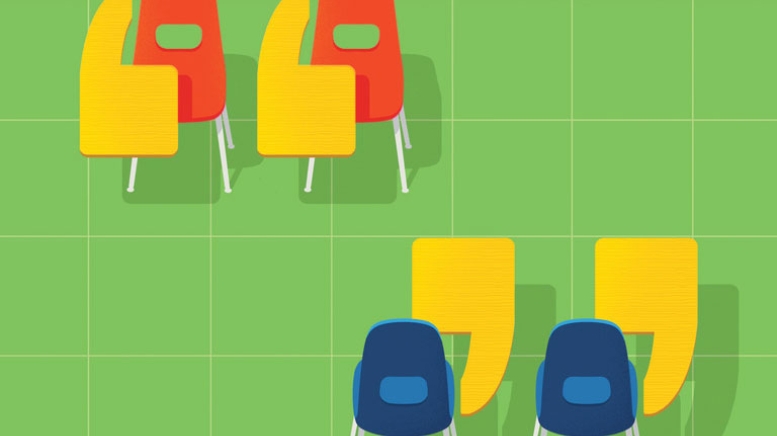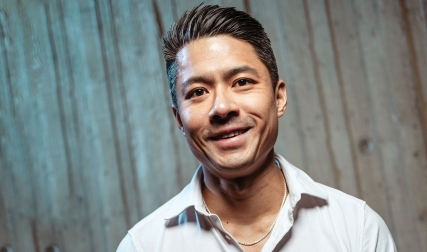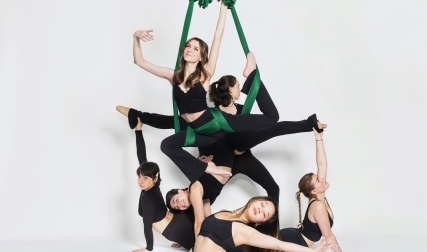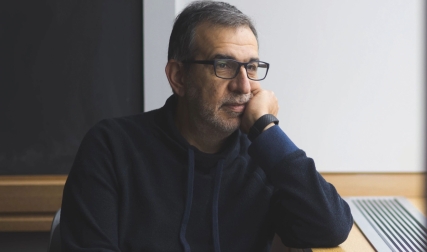“People are tired of being afraid to speak up. They’re tired of the shouting matches and not really getting anywhere, that feeling of stuckness,” says Elizabeth Smith, dean of the faculty and coleader of the Dialogue Project, which the administration rolled out as part of its Dartmouth Dialogues programming in January. “I think people are so ready for this because everyone sees the issue.”
Smith hopes the project provides everyone at the College with skills in understanding people with whom they disagree. She had been considering a dialogue-related initiative in recent years, and the idea gained impetus during recent months with President Sian Beilock’s emphasis on brave spaces, renewed violence in the Middle East, and growing attention to what is likely to be another contentious and polarizing U.S.presidential election.
Key components include a series of workshops and speakers on a variety of topics, forums on the Israel-Hamas war, and a collaboration with StoryCorps to record conversations between pairs of people from different backgrounds. (The audio project could eventually include alumni.) There’s also a classroom element: Ezzedine Fishere’s course, Politics of Israel and Palestine. He and Susannah Heschel, chair of Jewish studies, moderated the much-lauded community forums held on campus in October after the conflict broke open inIsrael and Gaza. “I want people to think in complex terms,” says Heschel, “not to be satisfied with the reductionist approach, to place the present in a larger context of the past but also to think about a better future.”
Smith admits she has yet to establish how her steering committee will measure the effectiveness of all these ideas, which are supported by $3 million in gifts. “We’re doing anexperiment,” she says. “It is a work in progress.” The student president of the Palestine Solidarity Coalitionat Dartmouth described Dialogues as a positive development in a January 18 op-ed in The Dartmouth, but he also criticized it as a “bandaid on a bullet wound.” He cited the October arrest of two students who were protesting in front of Parkhurst near a sign that read “BRAVE SPACES.”




